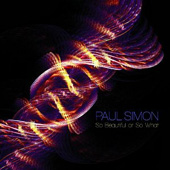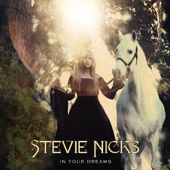![]()
| Still Serious After All These Years |
|
![]()
Paul Simon heads back to Graceland on his best album in 20 years.
by Will Hermes in Rolling Stone
Paul Simon
So Beautiful or So What
ROCK (HEAR MUSIC/CONCORD MUSIC GROUP)

![]() n "The Afterlife," an African-pop-flavored standout from his 12th solo album, Paul Simon describes the wait at the Pearly Gates like its a trip to traffic court, all long lines, mumbled excuses and jokey asides. (The narrator even tries to pick up a woman while killing time.) But underneath the mischief are serious concerns. "It seems like our fate/To suffer and wait for the knowledge we seek," Simon sings a sharply syncopated groove and heavenly electric riffs. "The Afterlife" resolves a darkness and light with a tossed-off charm -- a specialty of New York poets from Frank O'Hara to Biggie Smalls, including Paul Simon.
n "The Afterlife," an African-pop-flavored standout from his 12th solo album, Paul Simon describes the wait at the Pearly Gates like its a trip to traffic court, all long lines, mumbled excuses and jokey asides. (The narrator even tries to pick up a woman while killing time.) But underneath the mischief are serious concerns. "It seems like our fate/To suffer and wait for the knowledge we seek," Simon sings a sharply syncopated groove and heavenly electric riffs. "The Afterlife" resolves a darkness and light with a tossed-off charm -- a specialty of New York poets from Frank O'Hara to Biggie Smalls, including Paul Simon.

|
The world-music fusions on So Beautiful or So What sound as matter-of-fact as ever, common tongues of a polyglot modern world. On "Rewrite," about a Vietnam vet working at a car wash, while revisiting either a screenplay or his own haunted memory, Simon trades virtuoso lines on acoustic guitar with the kora harp of Yacouba Sissoko (who politely declines to outshine him; 21 strings versus six strings is as an unfair contest) in what could be an afternoon jam session in Washington Square Park. "Dazzling Blue" feels just as organic, combining country-folk melodies with South Indian percussion in a love song about driving out to the beach on Long Island.
So Beautiful or So What is old-fashioned in its brevity (10 songs, 38 minutes) and vivid in its storytelling. On "Love Is Eternal Sacred Light," a roadhouse-blues jam that rides a ghostly techno pulse, a character who appears to be the Almighty (in one of a few album appearances) bitches while driving "a pre-owned '96 Ford" down the highway: "Check out the radio/Pop-music station/That don't sound like my music to me." Yeah, yeah: Everyone's a critic.
But Simon's reveries come through a lens of the present. "Getting Ready for Christmas Day" dialogues with history by sampling a 1941 sermon about mortality by preacher Rev. J.M. Gates, whose words pop up between Simon's rhymes about a kid in Iraq returned for a third tour of duty. As collage pop goes, it ain't Girl Talk. But it's unsettling in a modern, Internet-time-warp way, like PJ Harvey's "Written on the Forehead" -- another recent song about war and human folly repeating itself, over and over again, in an endless loop.
Ultimately, So Beautiful or So What is a spiritual meditation that can't answer the big questions: Does God exist in a world of pain and inequality? Is there an afterlife? All Simon seems to know for sure is that there is love, and there is beauty -- and that, afterlife or no, great songs live forever. * * * * ![]()

| Return of the Gold Dust Woman |
|
![]()
Stevie Nicks gives her moonstruck songs a
modern sheen on a stellar comeback album.
by Rob Sheffield in Rolling Stone
Stevie Nicks
In Your Dreams
ROCK (REPRISE)


![]() tevie Nicks built her legend on the California-Babylon chronicles she perfected in the Seventies with Fleetwood Mac, and in the Eighties on underrated solo gems like The Other Side of the Mirror. But she still has that eternal edge-of-17 tremor in her voice. The gypsy queen is in royal form on In Your Dreams -- it's not just her first album in 10 years, it's her finest collection of songs since the Eighties.
tevie Nicks built her legend on the California-Babylon chronicles she perfected in the Seventies with Fleetwood Mac, and in the Eighties on underrated solo gems like The Other Side of the Mirror. But she still has that eternal edge-of-17 tremor in her voice. The gypsy queen is in royal form on In Your Dreams -- it's not just her first album in 10 years, it's her finest collection of songs since the Eighties.
In Your Dreams has the high-gloss L.A. production of her collaborators, Glen Ballard and Eurhythmics' Dave Stewart. But the material is Nicks in platform-soled hyper-romantic mode, with her voice in surprisingly supple shape. "Secret Love" is an oldie she wrote in 1976 -- who knew she was still keeping secrets from her Rumours days? It seems to be about one of her rockstar beaus, although she coyly maintains she can't remember which one. Yet it isn't even one of the better tracks on In Your Dreams. The over-the-top seduction ballad "Italian Summer" could be her answer to the Stones' "Wild Horses." It climaxes in a very Stevie credo: "Love was everywhere/You just had to fall."
Nicks finds storytelling inspiration everywhere, from the Twilight series ("Moonlight [A Vampire's Dream]") to Jean Rhys ("Wild Sargasso Sea"). But the real showstopper here is the Edgar Allan Poe tribute "Annabel Lee," a fan fave that's been kicking around on bootlegs since the Nineties. It's a six-minute meditation on love and death with echoes of the Fleetwood Mac classic "Dreams." Poe's key line -- "The moon never beams without bringing me dreams" -- might have been written in 1849, but it was clearly meant for Stevie Nicks to sing. * * * 1/2 ![]()
![]() Reader's Comments
Reader's Comments
No comments so far, be the first to comment.
